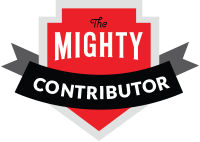THIS is what it feels like...what tired means to a person with chronic fatigue syndrome.
March 19, 2015
People have asked me what having Chronic Fatigue Syndrome is like or what it feels like...actually, no, people don't ask, they just presume what it is like...usually along the lines of I must feel tired all the time and just need more sleep. However, honestly, this is far from the truth.
If you trawl online, many people who have experienced CFS have described their own experiences in numerous ways. Each story or analogy, a glimpse into the pain, exhaustion, loneliness and distress that this disease causes. Each story is unique and personal. Each person's experience is unique and personal. Deep below the relatively 'normal' person you may see in front of you, they are experiencing so much more than you could ever presume.
Today, if you will come with me, I am going to take you on a journey through your own experiences and hope that in just a small way, it will give you a further peek into life of just one person with CFS.
I would say I want you to close your eyes and imagine, but if you do that you can't read what I am saying. So, with your eyes wide open, take a moment to think about the time(s) in your life when you have been the most tired.
Was it after a night when your child woke every 45 minutes without fail? Was it the morning after an all nighter to get that university assignment done and dusted? Was it after a 'sleepover' at a friend's house when you were a teenager? Was it after running your first half marathon, Tough Mudder or Spartan race? Was it the evening after sitting a whole day examination? Was it after a week of teaching a new kindergarten class, when you just got home and collapsed on the couch?
Take yourself to that feeling. How did you feel?
Yes, you were tired, duh, but what did tired feel like?
Were you walking around in autopilot, just going through the motions of what you needed to do? Brushing your teeth and eating your breakfast (probably in that order!) without the energy to lift the food or the brush to your mouth, but knowing you needed to do it, so you got through each of those tasks. Eating for the sake of eating, even though you weren't hungry and the thought of food made you nauseous. The dull headache that just persisted throughout the day.
Was it not quite trusting your judgement and second guessing yourself as you drove into university to drop the assignment in? Making a wrong turn on a trip you had done hundreds of times, or did it feel like your spatial awareness was kind of out as you bumped into chairs or people as you walked down the footpath?
Was it the feeling of being highly sensitive to any noise, smell or to the person who said or did the smallest thing wrong? Did you find yourself snapping or crying with no real reason, as those things that wouldn't have normally annoyed or upset you became major stressors?
Was it the feeling of adrenalin after the race? The surge of breathlessness, the dizziness, the muscles beginning to cramp, the deep exhaustion slowly beginning to overtake your body as the adrenaline wore off and the pain began.
Were you completely and utterly brain dead after sitting that exam? Did you struggle to add up the correct change for the train trip home? Did people ask you what you had done that day, and all you could do was stare at them blankly?
Or were you collapsed on the couch unable to contemplate lifting your arms to reach the glass of wine on the coffee table? That deep feeling of heavy limbs that even a glass of wine after a week of five year olds couldn't move.
Fatigue is more than just tiredness.
It encompasses emotional, cognitive and physical factors. It encompasses ALL of your life.
The combined description of the feeling of tired above would be the baseline, the everyday, for someone with Chronic Fatigue Syndrome. It is as if the brain has switched a switch and recreated a new normal. A new normal where mental clarity, spatial awareness, physical wellbeing and emotional stability are out the window. A new normal where you can feel out of breath and dizzy whilst lying in bed. A new normal where your limbs now weigh a ton. A new normal where your body is in pain constantly. A new normal where you wished you just felt tired or that a good nights sleep would make a difference.
This is what being tired (fatigued) means to a person with Chronic Fatigue Syndrome.
THIS is what tired feels like.
But I have hope, a hope that is bigger than how I feel. A hope that sustains me each and every day.
But I have hope, a hope that is bigger than how I feel. A hope that sustains me each and every day.
I lie down and sleep; I wake again, because the Lord sustains me.
Psalm 3:5
Please Note: I have people hesitant to tell me they are tired or that they are shattered after a long night, and then follow it up with "but not as tired as you must be", as if somehow they have no right to complain or be tired. Could I please let you know that I have the upmost empathy for anyone who is tired for any reason? Please don't feel like you are complaining... being tired is exhausting!!









1 comments
As you say, CFS can be different for each sufferer. I was fortunate in that I didn't ache and I accepted where I was basically and thus never suffered depression. I found the isolation difficult as I couldn't go out and maintain friendships other than through the computer (I am profoundly deaf and thus phone conversations are out for me too) As I recall my biggest frustration was two fold... people (including myself sometimes) believing that I was indulging in laziness and just needed to "pull up my socks" and how the fatigue sapped my mental capacity. I was studying at the time and I was not able to continue as all of my cognitive thinking was skewered. I still have difficulty with short term memory many years later.
ReplyDelete